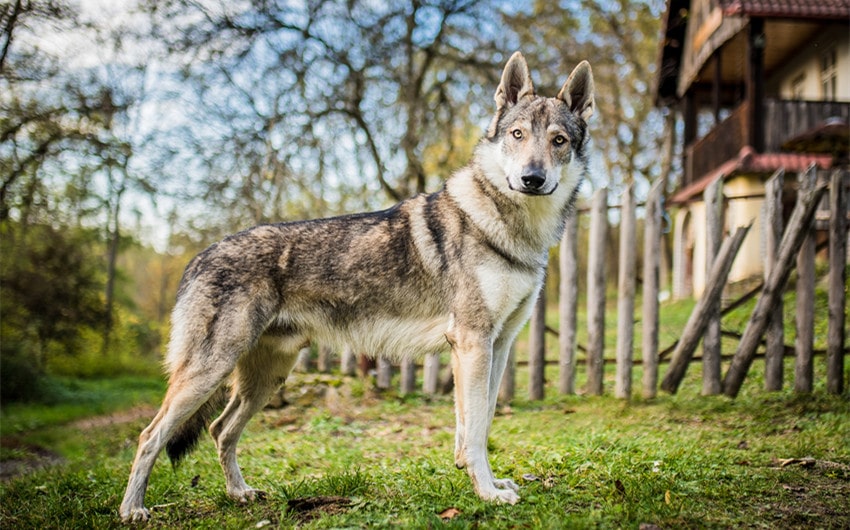What You Need to Understand Before You Get a Wolfdog as a Pet
Wolfdogs, or dog-wolf hybrids, are tightly regulated in the states that allow them as pets, and many potential owners aren’t aware of the rules. High-content wolfdogs (those with a high percentage of wolf DNA) require state permits, and some areas ban them entirely. Beyond legal restrictions, caring for a wolfdog is very different from owning a typical pet, as their behavior, needs, and challenges demand serious consideration.
Owning wolf hybrids is a major commitment. These animals often retain wild instincts, need secure housing, and may require specialized veterinary care that can be difficult to find. Without proper preparation, owners can quickly face legal issues, safety risks, and high costs.
Understanding these factors is essential before deciding if a wolfdog or hybrid can fit into your lifestyle.
Legal Restrictions and Permits
Wolfdog ownership is one of the most legally complicated areas of exotic pet keeping. Regulations differ not just from state to state but sometimes even between counties or cities.
In some US states, only low-content wolfdogs (those with a smaller percentage of wolf DNA) are permitted, while in others, ownership may be completely prohibited. Maintaining a wolfdog as a pet without complying with the above conditions may attract heavy fines, compulsory relinquishment, or slaughtering the animal.
Behavioral Challenges
Compared to regular dogs, wolfdogs retain strong wild instincts that are hard to predict or control. Their high prey drive can put small pets, like cats, chickens, or rabbits, at risk, even with extensive training. Owners should always supervise interactions with other animals and secure property to prevent escapes or accidents.
They may act independently and require a knowledgeable handler who understands wolf behavior and uses consistent reinforcement. For these reasons, wolfdogs are not suitable for first-time owners or anyone expecting a typical family pet. Proper socialization from a young age and ongoing behavioral training are essential for safety and harmony in the home.
Space and Containment Needs
Wolfdogs are powerful, athletic animals with a natural curiosity and determination to explore. Standard fencing that works for most dogs is rarely enough. A bored wolfdog will test every weakness, whether digging, climbing, or chewing through materials.
Apartments, tiny backyards, or urban life are not appropriate and could lead to destructive behavior, stress, or entrenched flight attempts. Owners must be prepared to spend a lot on containment systems and maintenance to ensure wolfdog safety and the safety of others.
Socialization and Lifestyle Commitment
Wolfdogs are highly social creatures, but their social needs do not always fit the human lifestyle. They can bond strongly with a person but be aloof or even fearful with strangers and thus are not the best for frequent visitors or active families.
The owners need to be able to dedicate considerable amounts of time to the daily interaction, routine schedules, and stimulation activities, keeping the animal physically active and mentally engaged. To have a wolfdog is not really about adding a member to the family pet; it’s about reshaping your lifestyle to fit the animal’s requirements.
Veterinary Attention and Insurance Issues
Finding proper veterinary care for wolfdogs is often one of the biggest challenges of ownership. Many veterinarians are reluctant to treat them due to their unique health needs, unpredictable behavior, and legal liabilities. Prospective owners should research and establish relationships with veterinarians experienced in exotic or hybrid animals before bringing a wolfdog home.
On top of this, most insurance companies won’t cover accidents caused by wolfdogs, considering them high-risk. Owners should be prepared for higher medical costs, difficulty finding treatment, and paying for any liabilities out-of-pocket. It’s wise to explore specialized liability insurance or set aside a dedicated emergency fund to handle potential accidents or health emergencies.
Final Takeaway
Getting a wolfdog seems exciting, but the truth is far more involved than the ordinary citizen expects. From state laws to training challenges, wolfdogs are a big responsibility that needs planning and a lifetime of commitment.
• The states that allow wolfdogs as pets usually have strict laws regulating wolfdog ownership, including permit requirements and restrictions.
• Wolfdogs retain many wolf instincts, making them unpredictable and difficult to train.
• They require large, secure enclosures to prevent escapes.
• Socialization and lifestyle demands are intense compared to those of regular dogs.
• Veterinary care and liability insurance may be harder to access.







